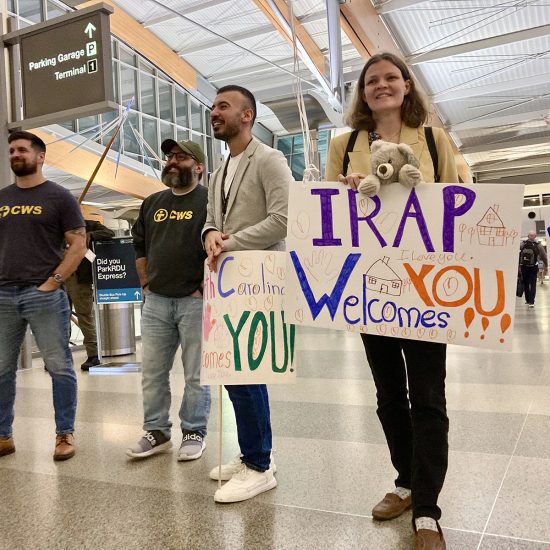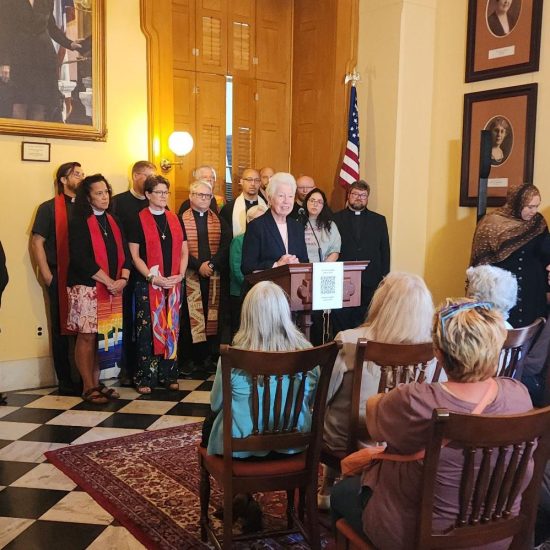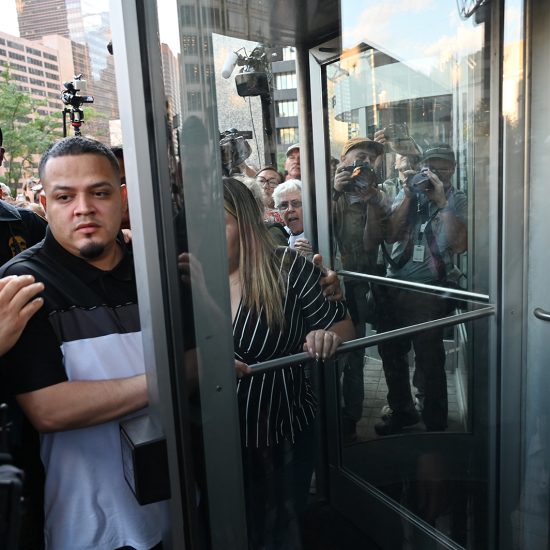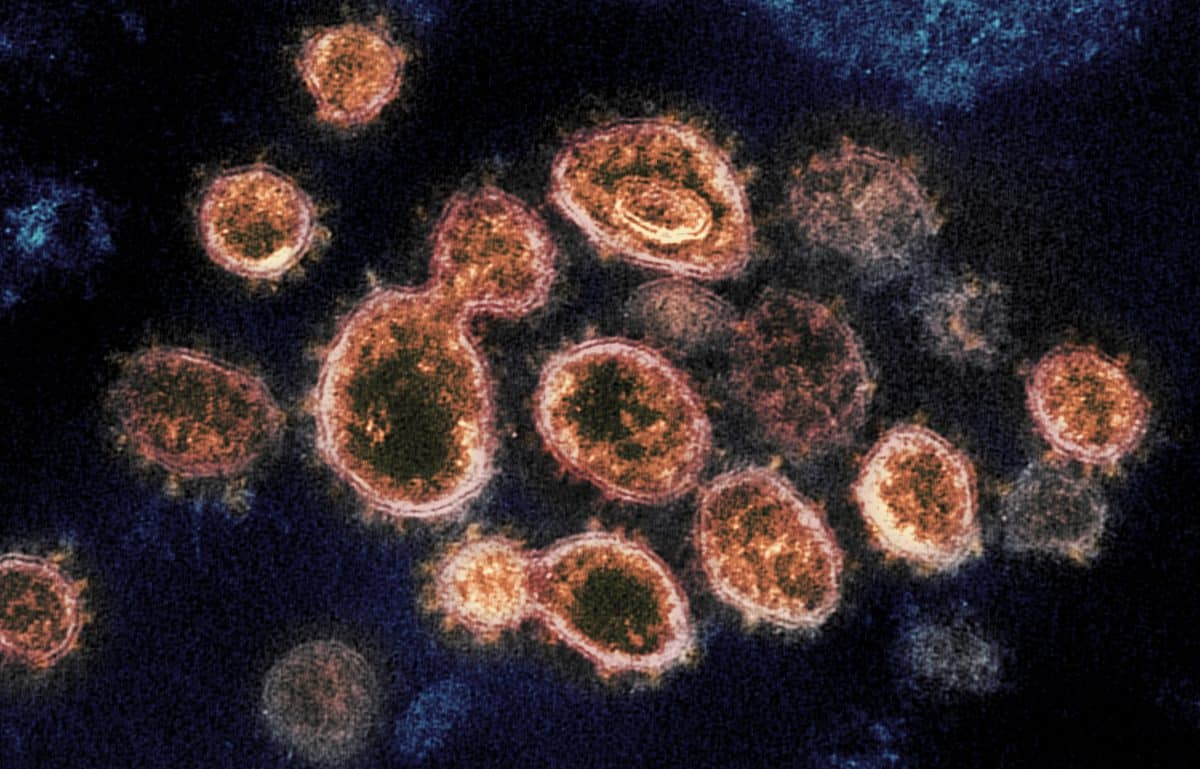
As the global coronavirus pandemic shuts down countries and endangers livelihoods and lives, some Baptist leaders warn that people already vulnerable in our society are the most vulnerable to the virus and its economic impact. And while the drops in the stock market and the woes of large global conglomerates dominate the news, Christians are urged to focus on those being left out.
As of March 24, more than 417,000 people globally have been infected with the COVID-19 respiratory disease caused by coronavirus, and more than 18,000 have died. In the U.S., the country with the third-highest number of infected persons, more than 52,000 have tested positive and more than 680 have died.
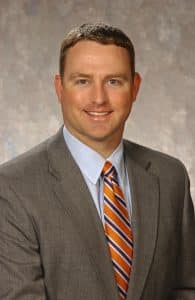
Stephen Reeves
Stephen Reeves, associate coordinator of partnerships & advocacy for the Cooperative Baptist Fellowship, told Word&Way that “those who are already vulnerable are even more so” with the coronavirus outbreak and the related recession. He said he’s particularly concerned about the impact on immigrants and those targeted by predatory lending institutions. CBF has focused much of its advocacy efforts on those two areas.
Talking about ministry efforts of CBF and Fellowship Southwest on and across the U.S.-Mexico border — including short-term mission trips to offer humanitarian assistance and a staffer who had been offering legal assistance to those waiting in Mexico to apply for asylum in the U.S. — he said that their work is hurt by the shutdown of the border.
“Our advocacy priorities are rooted in our mission work,” he explained. “You only know the issues that community faces when you know the community. As Bryan Stevenson says a lot, to ‘get proximate’ to the problem. Well, proximate is the problem now. You can’t get there.”
Reeves did mention, however, that one Texas pastor, Lorenzo Ortiz, decided to stay behind in Mexico to continue ministering once the border closed. Ortiz operates three immigrant shelters in Nuevo Laredo, Mexico, and crossed back on March 20 just before the border closed so he could keep ministering to asylum seekers who, Reeves noted, are now not only vulnerable to cartel violence but also coronavirus.
“Particularly the migrant camps in Mexico are really vulnerable to the virus,” Reeves said since social distancing and hand-washing are not practical options in the camps.
“You’ve got this already vulnerable population,” he added. “And then now, should the virus get in there, it would just be devastating. We have great concerns.”
Reeves also worries predatory lending institutions like payday and car title loan shops will make things worse since because of them “vulnerable folk get taken advantage of in desperate times.” He fears now the number of people hit by these high-interest loans is “going to increase dramatically.”
These institutions create a “debt trap,” he explained, by offering loans at interest rates of several hundred percent or worse. CBF has long advocated for an interest cap of 36 percent to protect the “financially vulnerable,” but now Reeves hopes that limit will be included in the stimulus legislation being considered in Congress so that the stimulus checks “intended to be help” don’t “end up just in the pockets of payday lenders.”
Other aspects of some versions of the proposed stimulus legislation that concern Reeves include efforts to make immigrants and refugees ineligible for assistance, and that the bill might not extend food aid benefits enough. So, Reeves encouraged Baptists to pay attention to the details of what passes.
“We need to be looking very closely at who’s left out, who’s needs and who’s concerns did not make this legislation,” he said. “In the coming months, pay attention to who’s been left behind in the first round, and be willing to call [lawmakers], speak out for those that are left behind.”
“Stay committed beyond your congregation,” he added. “People will be tempted to be overwhelmed by the needs of their church and the folks in their church — and that’s totally understandable. Then commit beyond that to your community, and be creative and flexible in how to serve folks. It’s going to take some really creative thinking to be able to help when we’re not proximate.”
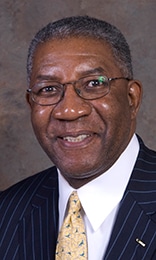
Wendell Griffen
Wendell Griffin, a Baptist pastor and circuit court judge in Arkansas, made similar arguments in his online sermon he posted for their March 15 service after in-person services were canceled to help prevent the spread of coronavirus. Griffen, who leads New Millennium Church in Little Rock, noted that while many people are experiencing new problems like isolation and canceled gatherings, for the most vulnerable in our society these are not new experiences.
“There are many for whom separation, estrangement, avoidance, and the sense of isolation that goes with these things are commonplace,” he explained. “Our brothers and sisters who are incarcerated know what this is like. Our brothers and sisters who have been isolated, estranged, and forced to live as refugees, asylum seekers, and migrants know what it means to be forced apart from family, friends, and places they cherish.”
Griffen argued that while some politicians appear more concerned about stock prices, most people are instead worried about their health and that of their loved ones. Yet, even with those fears, he urged his congregants to trust God and not allow panic to overtake them. Drawing on Psalm 46 and past events, he insisted God is still “our refuge and strength” in times of despair, thus Christians should keep hope.
“The God whose truth overruled centuries of slavery in the United States is with us,” he declared. “The God whose justice delivered women from political disenfranchisement and transformed them into voters is with us. We have history that teaches and comforts us to remember that God is faithful, present, able, and willing to help us through this unsettling situation.”
With that reminder of hoping in God, Griffen also urged his congregants to in this time imagine a better society that cares for the most vulnerable. Thus, he expressed hope U.S. Christians would “stop and rethink our slavish and idolatrous trust in capitalism and the self-centered greed and vanity that undergird it.” He added we need “to realize that our capitalist arrangements for providing healthcare do not follow God’s generosity” but instead “represent idolatrous devotion to human greed, opportunism, and oppression toward our vulnerable neighbors.”
“Now is a good time for people in the United States to openly question why universal free access to test kits for coronavirus required declaring a national emergency. Now is a good time to question why universal access to free healthcare is somehow deemed ‘unfeasible,’” he argued. “Now is a good time to remind the world that God does not charge the world for air, water, and sunlight. God does not seek to profit from our dependence on air, water, and sunlight.”
“God’s example for us is extravagant generosity and hospitality, not selfish greed and fearful hoarding,” he added. “This is a season to choose to reconnect with God, with one another, and renew our sense of being a global community.”


